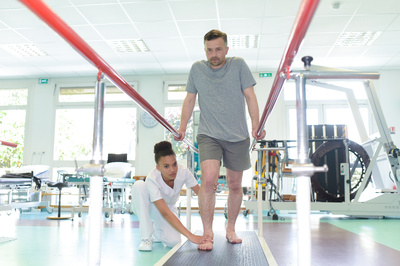 Overview: Research from multiple sources is demonstrating that “conservative care,” such as chiropractic work, physical therapy, and acupuncture, can reduce opioid use for chronic pain. This points to using these methods first before resorting to opioid medications.
Overview: Research from multiple sources is demonstrating that “conservative care,” such as chiropractic work, physical therapy, and acupuncture, can reduce opioid use for chronic pain. This points to using these methods first before resorting to opioid medications.
What Is Conservative Care For Chronic Pain?
Conservative care in this context means using one or more non-invasive, less-costly, and less-risky interventions to treat chronic pain. These treatment methods are less risky than strong painkillers and surgery due to the lower risk of infection or death. Some examples of conservative care include chiropractic treatment, physical therapy, and acupuncture.
Recent research supports conservative care as effective for chronic pain. An analysis of studies conducted on people with lower back pain found that of 1,711 patients who got chiropractic care, while up to half complained of short-term annoyances, most also reported at least some improvement.
The most comprehensive study, however, was published in the British Medical Journal and looked at 216,504 adults and their use of opioids, both in the short and long term. The patients who went to a chiropractor showed a 90% reduction in short-term use, to acupuncturists 91%, and to physical therapists 85%. There were similar reductions in long-term use.
An analysis of smaller studies found an inverse relationship between chiropractic care and opioid use, meaning that the more often chiropractic treatment was used, the less frequently opioids were given. Chiropractic patients were 64% less likely to use opioids overall.
There were several limitations to the study, however, including a small group of studies in the analysis. It was also impossible to conclude that chiropractic care actually caused less need for opioids, only that the two were associated. More study is needed on the topic.
How Does Conservative Care Reduce the Use of Opioids?
Pain is a complex topic among doctors, not least because it’s a subjective experience. The same condition can affect two different people and yield completely different results. This makes understanding how conservative care reduces pain a complex issue that’s still being studied.

Other theories are more complex and controversial. Many believe the best way to manage pain is to become better aware of what your body can do despite pain and to learn which pain signals are warning signs of a serious problem. However, that ability, or lack of it, is unique to each patient. Nor can all pain be treated this way; at best, it is one of multiple approaches used for pain management.
Another question is the role of the placebo response, which appears to be part of the body’s pain management system. With these treatments in particular, scientists struggle to sort what’s happening from what the brain thinks is happening, and which of the two is more important.
That said, however, it’s hard to argue with conservative care, especially for those in recovery and those who live with a loved-one in recovery. It’s cost-effective; done correctly, there’s little risk of further injury or other problems; and even if it doesn’t eliminate pain, it may make it manageable and reduce the chances of needing more dangerous interventions, such as opioids.
Harris House Can Help
A supportive environment is important for both emotional and physical pain. If you’re in recovery, or are concerned about a loved-one on the journey to recovery, contact us.








